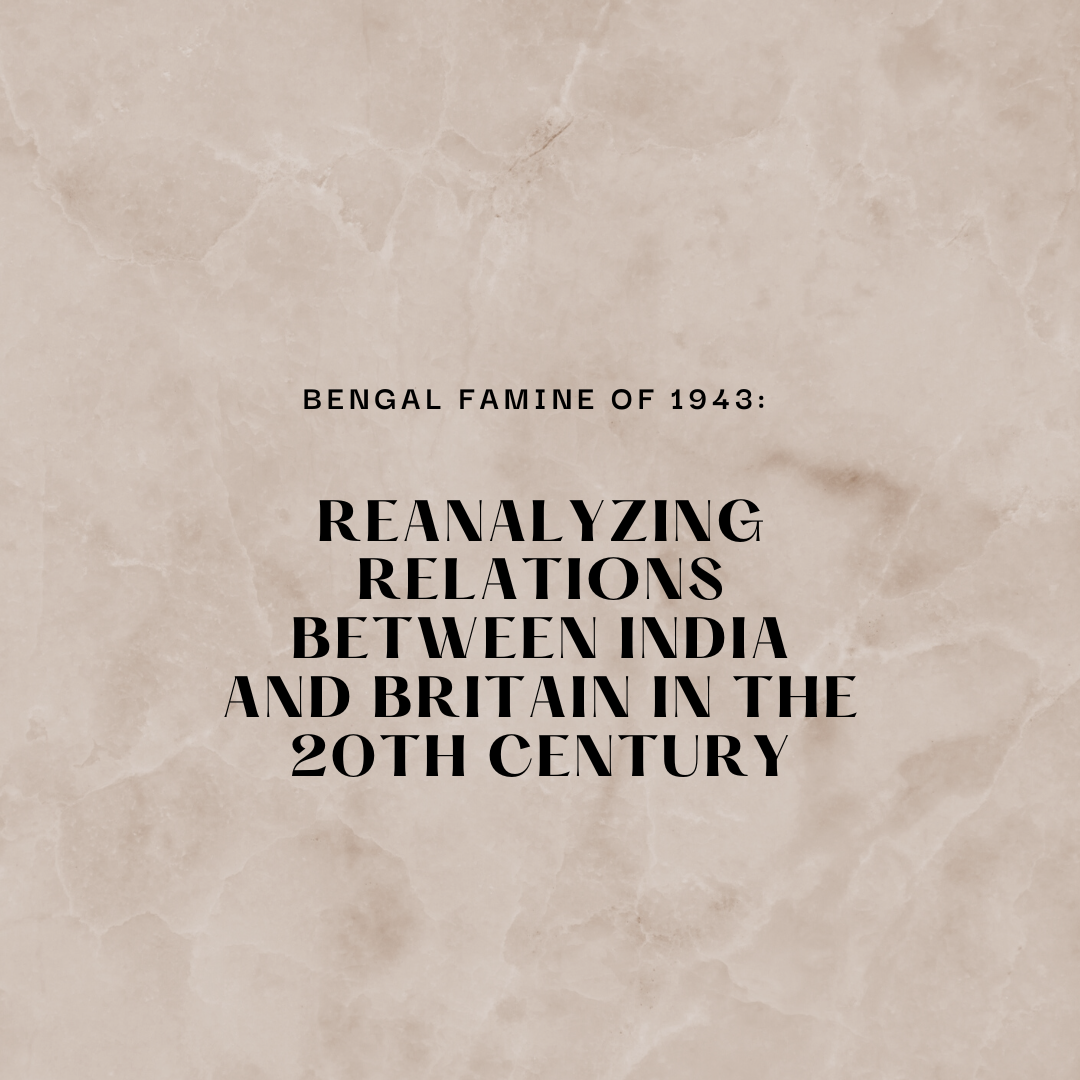OBJECTIVES:
- Understand the context leading up to the Bengal Famine of 1943 and its causes
- Understand the role of imperial policies and practices in the greater context of India’s
history and world history - Strengthen analytical and investigative skills through discussion and interpretation of
primary sources



